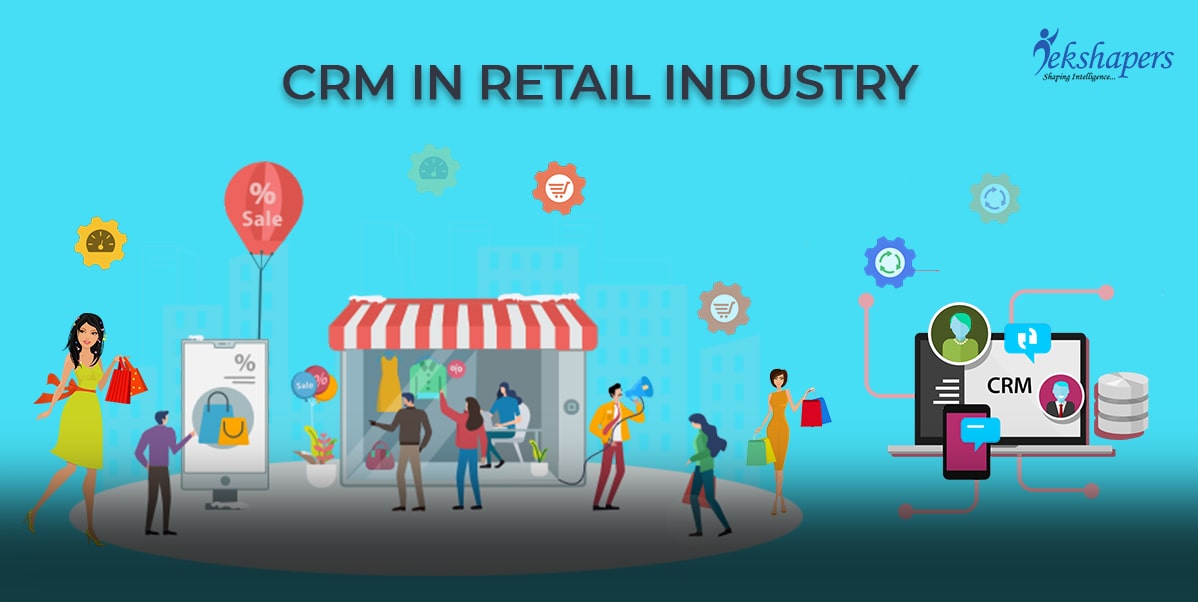"Rev Up Your Retail Game: How CRM Can Help You Sell More, Faster"
"Rev Up Your Retail Game: How CRM Can Help You Sell More, Faster"

"Rev Up Your Retail Game: How CRM Can Help You Sell More, Faster"
As a retail business owner, you’re constantly on the lookout for ways to drive sales, improve customer satisfaction, and stay ahead of the competition. One tool that can help you do just that is a Customer Relationship Management (CRM) system. In this article, we’ll explore the world of CRM for retail businesses, what it can do for you, and how you can use it to sell more, faster.
What is CRM?
CRM is a software system that helps you manage your customer interactions and relationships. It’s like having a super-powered Rolodex that holds all your customer data, purchase history, and communication records in one place. With CRM, you can track every interaction with your customers, from phone calls to social media messages, and use that data to tailor your sales approach to each unique customer.
Why Do Retail Businesses Need CRM?
In today’s digital age, customers expect personalized experiences and instant gratification. They want to be able to buy online, return in-store, and get personalized recommendations based on their purchase history. A CRM system helps you deliver on those expectations by:
- Centralizing customer data: With CRM, all your customer data is in one place, making it easy to access and share across your sales team.
- Streamlining customer interactions: CRM automates many routine tasks, such as follow-up emails and reminders, freeing up your team to focus on high-touch, high-value interactions.
- Providing personalized recommendations: With CRM, you can analyze customer purchase history and behavior to offer personalized product recommendations, increasing average order value and customer satisfaction.

How Can Retail Businesses Use CRM?
Retail businesses can use CRM in a variety of ways to drive sales, improve customer satisfaction, and streamline operations. Here are a few examples:
- Sales and Marketing: Use CRM to track customer interactions, identify new sales opportunities, and personalize marketing campaigns.
- Customer Service: Use CRM to manage customer complaints, provide personalized support, and resolve issues quickly.
- Inventory Management: Use CRM to track inventory levels, optimize stock levels, and automate reordering processes.
What Features Should Retail Businesses Look for in a CRM System?
When choosing a CRM system for your retail business, here are a few key features to look for:
- Ease of use: Look for a system that’s intuitive and easy to use, with minimal training required.
- Customization: Choose a system that allows you to customize fields, workflows, and reports to fit your business needs.
- Integration: Look for a system that integrates with your existing software systems, such as email marketing, social media, and accounting.
- Scalability: Choose a system that can grow with your business, with flexible pricing plans and scalable infrastructure.
- Mobile access: Look for a system that offers mobile access, so your team can access customer data on-the-go.
Benefits of CRM for Retail Businesses
Implementing a CRM system can have a significant impact on your retail business, driving sales, improving customer satisfaction, and reducing costs. Here are just a few benefits of CRM for retail businesses:
- Increased sales: With CRM, you can identify new sales opportunities, personalize marketing campaigns, and optimize sales processes.
- Improved customer satisfaction: With CRM, you can provide personalized support, resolve issues quickly, and offer tailored product recommendations.
- Reduced costs: With CRM, you can automate routine tasks, streamline customer interactions, and optimize inventory management.
- Better decision-making: With CRM, you have access to real-time data and analytics, making it easier to make informed decisions about sales, marketing, and customer service.
Case Study: How One Retail Business Used CRM to Boost Sales
Meet Sarah, the owner of a popular boutique clothing store in New York City. Sarah was struggling to keep up with her fast-growing customer base, and was manually tracking customer interactions using spreadsheets. She implemented a CRM system to centralize customer data, streamline customer interactions, and personalize marketing campaigns. Within six months, Sarah saw a 25% increase in sales, and a 30% decrease in customer complaints.
Getting Started with CRM for Retail Businesses
Implementing a CRM system can seem daunting, but with a little planning and preparation, you can get started quickly and easily. Here are a few steps to get you started:
- Define your goals: Identify what you want to achieve with CRM, whether it’s increasing sales, improving customer satisfaction, or reducing costs.
- Research CRM systems: Look for CRM systems that specialize in retail businesses, and read reviews from other retailers who have used the system.
- Choose a vendor: Select a CRM vendor that offers the features, pricing, and support you need.
- Implement the system: Work with your CRM vendor to implement the system, and provide training for your team.
- Monitor and adjust: Monitor your CRM system regularly, and make adjustments as needed to ensure you’re getting the most out of the system.
Conclusion
CRM is a powerful tool that can help retail businesses drive sales, improve customer satisfaction, and reduce costs. By centralizing customer data, streamlining customer interactions, and providing personalized recommendations, CRM can help you stay ahead of the competition and grow your business. With the right features, pricing, and support, you can get started with CRM quickly and easily, and start seeing results within months.
